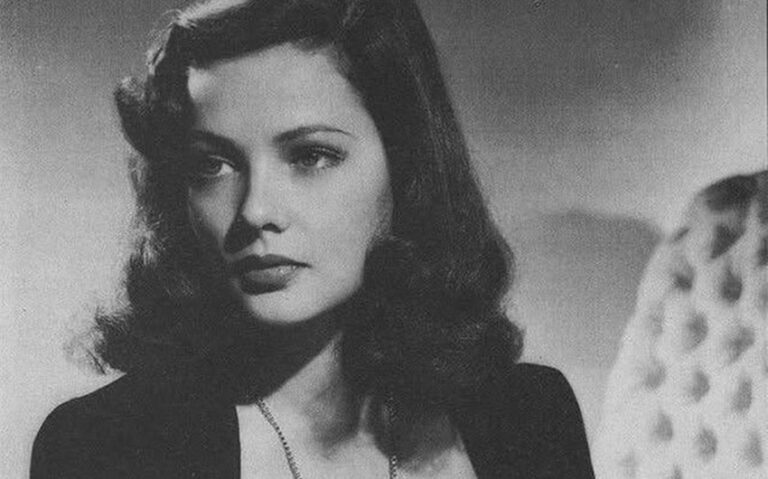Drea de Matteo OnlyFans: From The Sopranos to a Bold New Performance Stage
Drea de Matteo’s decision to join OnlyFans didn’t just raise eyebrows—it rewrote the rules for aging actresses in Hollywood. Best known for her Emmy-winning role as Adriana La Cerva on The Sopranos, de Matteo has now turned to the adult content platform not as an act of desperation, but as a radical reclaiming of image, autonomy, and performance. Her move is not just cultural commentary—it’s a power play dressed in lingerie.
The Hollywood Double Standard
For years, Hollywood has glorified youth and punished women for aging. Roles dry up. Opportunities vanish. And when women over 40 seek to reinvent themselves, they’re often dismissed as “trying too hard” or “not aging gracefully.” Drea de Matteo, now in her early 50s, refused to accept that fate. Instead, she chose to monetize her appeal directly, on her own terms, and without the filter of a studio executive or tabloid lens.
On OnlyFans, she’s not begging for relevance—she’s redefining it. The actress who once played mob molls and biker queens now plays herself: raw, confident, and still unapologetically magnetic. If there’s discomfort among her former fans, it’s likely because she’s revealing more than just skin. She’s revealing her refusal to disappear.
From Character to Control
De Matteo’s acting career was built on complexity. Adriana in The Sopranos wasn’t just a girlfriend—she was a woman torn between love and survival. Wendy on Sons of Anarchy wasn’t just a junkie—she was a portrait of pain and redemption. But as an actress, she was always filtered through scripts, directors, and networks. OnlyFans offers something radically different: creative and financial control.
She decides the costumes. The lighting. The captions. She sets her own hours and sells directly to fans without middlemen. In this sense, OnlyFans is not a downgrade from television—it’s an evolution of her art. A different kind of stage, with a more intimate audience, and no gatekeepers.
Facing Financial Realities with Flair
It’s no secret that actors—especially those who don’t remain on the A-list—face financial instability. Streaming services have changed the royalty game. Residuals from old shows have dwindled. And when de Matteo openly admitted that she joined OnlyFans because work had dried up and bills had piled up, it was a moment of rare honesty in an industry built on illusion.
But rather than framing her decision as failure, de Matteo reframed it as freedom. She refused to go quietly into irrelevance. She got a ring light and logged on. And in doing so, she joined a growing wave of public figures who are challenging outdated ideas of what respectable success looks like. For de Matteo, success is survival with style—and a subscription base.
A Different Kind of Vulnerability
OnlyFans is often seen as the domain of twenty-something influencers and adult performers, but de Matteo’s presence disrupts that narrative. Her content is sensual, yes—but it also exudes the kind of confidence that can only come from experience. There’s power in her gaze, wit in her captions, and a lived-in glamour that’s immune to trend cycles.
And yet, there’s vulnerability too. Not just physical exposure, but emotional openness. By showing up, flaws and all, in a space that often rewards artificiality, she dares to be real. Her fans aren’t just buying photos—they’re buying access to a woman who refuses to be edited down.
Reactions, Ridicule, and the Reinvention Game
As expected, de Matteo’s OnlyFans debut drew mockery. Headlines called it “shocking.” Comment sections filled with judgment. But this was hardly her first brush with controversy, and certainly not the first time her choices were scrutinized. What mattered more was how she responded—not with apologies, but with more content.
In fact, the backlash only seemed to sharpen her identity on the platform. She embraced the tabloid spectacle and turned it into fuel. Where others wilt under online criticism, de Matteo thrived. She turned discomfort into currency, and shame into strategy. Her defiance is as much a part of her brand now as any sultry photo.
Owning the Narrative in the Age of Clickbait
In a media landscape driven by outrage and headlines, Drea de Matteo’s move to OnlyFans became instant clickbait. But beneath the snarky news blurbs and viral tweets lies a woman asserting ownership of her narrative. She could have faded into quiet roles or sought mainstream redemption through reality TV. Instead, she chose to sell herself directly—on her own terms, to her own audience.
And that audience isn’t just there for titillation. Many are longtime fans, curious to see what reinvention looks like up close. They’re buying into a persona that doesn’t need network approval. It’s a middle finger to an industry that forgets women past a certain age, and a reminder that relevance is not something given—it’s claimed.
The New Class of Celebrity Disruption
Drea de Matteo is now part of a growing cohort of public figures rewriting the rules of fame. From musicians and actors to influencers and even politicians’ partners, OnlyFans is no longer taboo—it’s a viable business model. What was once seen as desperate is now strategic. What was stigmatized is now a tool for autonomy.
De Matteo’s fame, rooted in prestige TV, adds an unexpected weight to the platform. She’s not using OnlyFans because she has nothing else—she’s using it because it lets her do something no network ever could: be entirely herself. No censors. No arcs written by men. Just Drea, lit how she wants, telling her story in fragments of lace and candor.
A Legacy Rewritten, One Post at a Time
Drea de Matteo’s legacy was already cemented by her unforgettable performances on screen. But now, she’s building something new—not a comeback, but a continuation. A second act that refuses to be quiet or polite. One that says aging doesn’t mean erasure, and sexuality doesn’t have an expiration date.
Her OnlyFans presence may have started as a means of income, but it’s evolved into something more defiant: an artful refusal to be shamed, a powerful display of reinvention, and a case study in how women can write their own rules—even if that means breaking a few in the process.
Featured image source: Instagram







